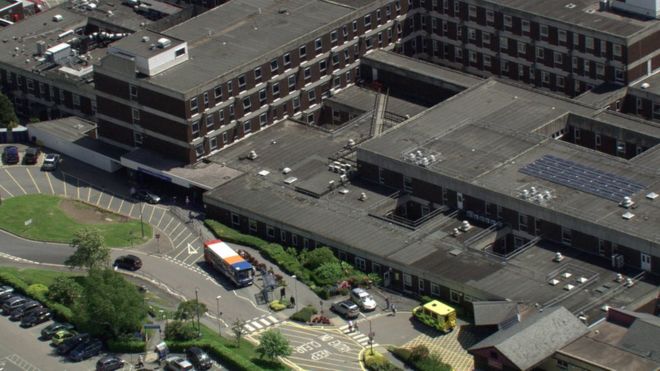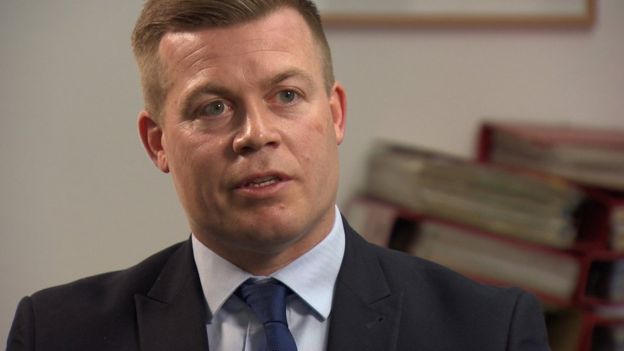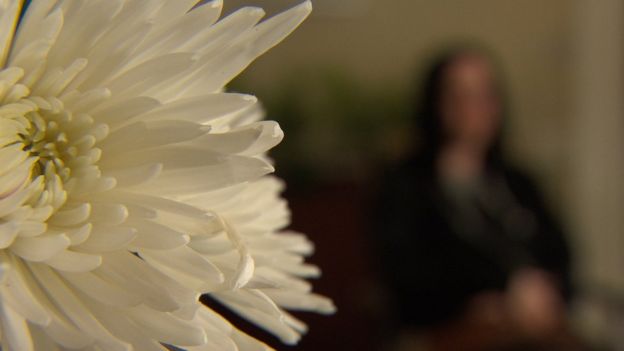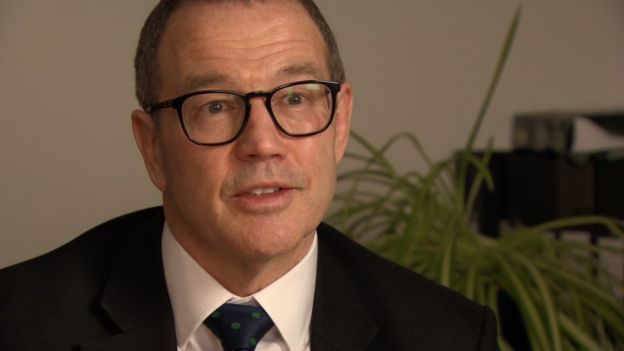 At least 20 maternity deaths or serious harm cases have been linked to a Devon hospital since 2008, according to NHS reports obtained by the BBC.
At least 20 maternity deaths or serious harm cases have been linked to a Devon hospital since 2008, according to NHS reports obtained by the BBC.
A 2017 review - never released - raised "serious questions" about maternity care at North Devon District Hospital.
The BBC spent two years trying to obtain the report and won access to it at a tribunal earlier this year.
Northern Devon Healthcare NHS Trust (NDHT) said the unit was "completely different" after recommended reforms.
A 2013 review by the Royal College of Obstetricians and Gynaecologists (RCOG) investigated 11 serious clinical incidents at the unit, dating back as far as 2008.
The report identified failings in the working relationships at the unit, finding some midwives were working autonomously and some senior doctors failed to give guidance to junior colleagues.
'Lack of trust'
Despite the identified problems with "morale", the subsequent investigation by RCOG in 2017 expressed concerns with the "decision-making and clinical competency" of senior doctors and their co-operation with midwives.
An independent review into midwifery in October 2017 noted "poor communication" between medical staff on the ward for more than a decade.
The report identified a "lack of trust and respect" between staff and "anxiety" among senior midwives at the quality of care.

When asked if they would recommend the unit to women with complicated pregnancies, some participants said they would take them elsewhere.
In attempts to prevent the release of the full 2017 report, the trust argued anonymity was required to ensure staff participation in future reviews.
Oliver Thorne, a solicitor who has acted in more than 20 legal cases involving the unit, said there had been a "decade of inaction" at the trust.
"I'm still getting cases referred to me involving the same issues... those families could have avoided the heartbreak they're going through," he added.
'Carrying guilt around'
Julia, whose real name the BBC is not using because she wished to remain anonymous, said her baby was left with severe brain damage in 2017 after complications with the birth went unnoticed.
She said her baby was born with "no signs of life" after an emergency caesarean and had to be resuscitated.
"At first nobody said anything, nobody would make eye contact or say what had happened," Julia added.
Some mothers were not even informed an investigation into their child's death had taken place, the BBC discovered.
Beth (also not her real name) was only told of the outcome of an internal inquiry into her baby's death 10 years later.
She said her pre-eclampsia was missed but medical staff did not make this clear at the time.

As a result of being kept in the dark, Beth said she blamed herself and had been "carrying guilt around" for a decade.
Both women are currently pursuing legal action against the NDHT.
In 2017 the RCOG report said it had been called to the trust after four "serious incidents" - three of which concerned the investigators.
One incident "raised very serious questions regarding appropriate decision-making and clinical competency," the report said.
It found some senior doctors at the unit appeared "demotivated" and "deskilled", describing midwives as "advocates for women" trying to ensure "safety within this maternity unit".
"There is a definite breakdown in relationships between medical and midwifery staff within the unit," the report concluded.

Medical director at NDHT Prof Adrian Harris, who took over the unit in 2018, said sweeping changes on the ward meant "progress" since the report was published.
He said this included having enacted all 11 reforms recommended by the RCOG in 2017.
"We look at a completely different unit today from the boardroom right down to the shop floor," Prof Harris said.
"My message is one of regret and apology on behalf of the unit."
You can learn more about this story on Inside Out South West from 19:30 GMT and afterwards on BBC iPlayer.
Comments